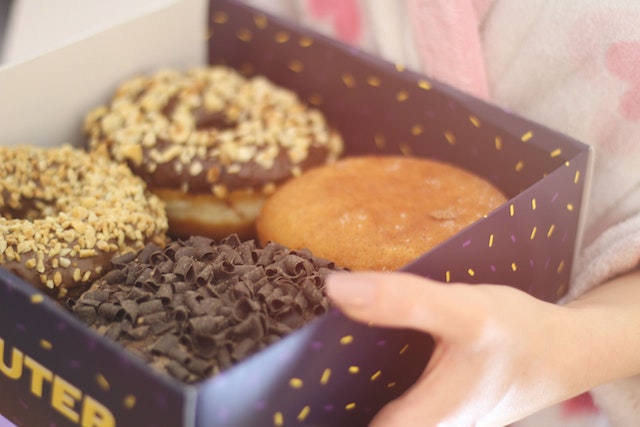Sleep is a vital component of our overall health and well-being, yet many of us struggle to get a good night’s rest. While factors like stress and poor sleep hygiene often contribute to sleep disturbances, the food we eat also plays a significant role. In this article, we’ll delve into the effects of sugary foods
Sleep is a vital component of our overall health and well-being, yet many of us struggle to get a good night’s rest. While factors like stress and poor sleep hygiene often contribute to sleep disturbances, the food we eat also plays a significant role. In this article, we’ll delve into the effects of sugary foods on your sleep patterns and overall sleep health.
The Sugar-Sleep Connection
Our dietary choices have a profound impact on the quality and duration of our sleep. Among the various culprits, sugar stands out as a significant disruptor of our sleep patterns. Here’s how sugar affects your sleep:
1. Blood Sugar Rollercoaster
Sugary foods and drinks cause rapid spikes in blood sugar levels, which are followed by sharp crashes. These fluctuations can lead to nighttime awakenings and a disrupted sleep cycle. It’s essential to maintain stable blood sugar levels for a restful night’s sleep.
2. Increased Alertness
Sugar is a natural stimulant. When you consume sugary items before bedtime, your body may become more alert and less inclined to relax. This can make it challenging to fall asleep, leading to restlessness during the night.

Photo by Tofros.com: https://www.pexels.com/photo/person-holding-box-of-donuts-295043/
3. Sleep-Disrupting Chemicals
Some sugary foods, especially those with high caffeine content, also contain sleep-disrupting chemicals. Chocolate, for instance, contains theobromine, which is a stimulant that can interfere with sleep.
4. Increased Risk of Sleep Disorders
Excessive sugar intake has been associated with an increased risk of developing sleep disorders such as sleep apnea and restless legs syndrome. These conditions can further reduce sleep quality and leave you feeling fatigued.
Identifying Sleep-Disrupting Sugary Foods
It’s not just the obvious candies and desserts that can negatively affect your sleep. Sugary foods can be hidden in a variety of items you might consume regularly. Here are some common sources of hidden sugars that can disrupt your sleep:
- Soda: Sugar-sweetened soft drinks are loaded with sugar and caffeine, making them a double whammy for sleep disruption.
- Cereals: Many breakfast cereals, even those marketed as healthy, can be high in added sugars. Read labels to make informed choices.
- Sauces and Condiments: Some savory sauces, like ketchup and barbecue sauce, can contain significant amounts of sugar. Check the ingredient list for added sugars.
- Snack Bars: Granola bars, energy bars, and many so-called healthy snacks can be sugar-laden. Opt for options with no added sugars or natural sweeteners.
- Fruit Juices: Fruit juices are often high in natural sugars. While they may seem like a healthier choice, they can still affect your blood sugar levels.
Improving Your Sleep Hygiene
The good news is that by making some dietary adjustments and adopting better sleep hygiene practices, you can significantly improve your sleep quality. Here are some tips:
- Limit Sugar Intake: Reduce your consumption of sugary foods and drinks, especially in the hours leading up to bedtime.
- Read Labels: Check food labels for hidden sugars, and choose items with little to no added sugars.
- Eat Balanced Meals: Consume balanced meals that include lean protein, whole grains, and plenty of fruits and vegetables. This can help stabilize blood sugar levels.
- Stay Hydrated: Dehydration can contribute to poor sleep, so make sure you’re well-hydrated throughout the day. However, avoid excessive water intake close to bedtime to prevent waking up for bathroom trips.
- Establish a Routine: Go to bed and wake up at the same time every day, even on weekends. This helps regulate your body’s internal clock.
- Create a Relaxing Bedtime Ritual: Engage in calming activities before bed, such as reading, taking a warm bath, or practicing relaxation techniques like deep breathing.
- Limit Screen Time: The blue light emitted by phones, tablets, and computers can interfere with your body’s production of melatonin, a hormone that regulates sleep. Avoid screens at least an hour before bedtime.
- Make Your Bedroom Comfortable: Ensure your bedroom is conducive to sleep by keeping it dark, cool, and quiet. Invest in a comfortable mattress and pillows.
Image by gpointstudio on Freepik
In Conclusion
Sleep is a precious commodity that plays a crucial role in our overall health. While sugar may be tempting, it’s important to recognize its detrimental effects on your sleep. By making informed choices and practicing good sleep hygiene, you can enjoy sweet dreams and wake up feeling refreshed and revitalized. Your sleep quality is worth the effort, and by prioritizing it, you’ll reap the benefits of better physical and mental well-being.






















Leave a Comment
Your email address will not be published. Required fields are marked with *